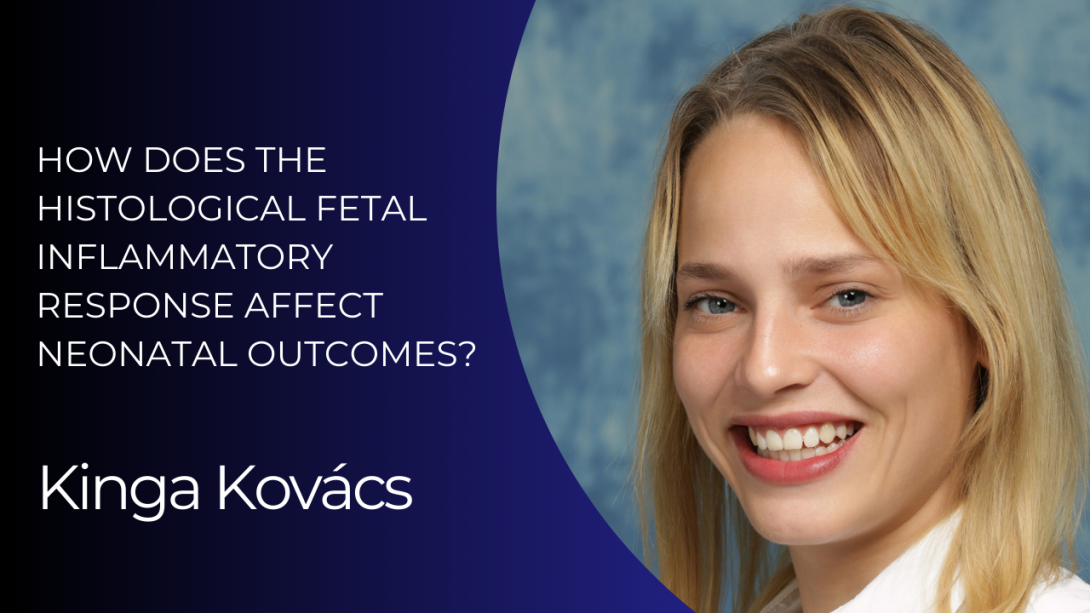
She is primarily interested in how the histological inflammation of the placenta and umbilical cord affects the outcome of premature infants. Her other focus is finding the optimal dose of caffeine citrate and its effect on extubation success rate among preterm infants. In November, Dr. Kinga Kovács was named Best Second-Third-Year PhD Student at the Centre for Translational Medicine.
Dr. Kinga Kovács is a pediatric resident at the Department of Obstetrics and Gynecology, Semmelweis University, and her main area of interest is neonatology. “I have always been interested in premature infant care, and after one year of residency, I intended to get involved in research as well. At that time, Professor Péter Hegyi visited our clinic and introduced the Centre for Translational Medicine. I looked into the program, and my colleagues also spoke highly of it, so I applied. The idea was also supported by my PhD supervisor, Dr. Ákos Gasparics.” During her work, Dr. Kovács collaborates with the Department of Pathology and Experimental Cancer Research to collect and analyze placenta and umbilical cord samples from premature babies born at their neonatal intensive care unit. Her main focus is on how the different histopathological conditions of the placenta and umbilical cord affect the outcome of preterm infants. A meta-analysis has been published recently on this topic, examining the difference between histological inflammation in the placenta of preterm infants and inflammation spreading to the umbilical cord (histological fetal inflammatory response).
The results of the meta-analysis show that if the inflammation also affects the umbilical cord, more complications are expected in premature infants. Such complications include intraventricular hemorrhage, retinopathy of prematurity, and bronchopulmonary dysplasia, but there are also higher odds of early-onset sepsis. These results contribute to a more precise prognosis evaluation and can be a helpful guide in clinical decision-making.
“After our meta-analysis, we also aim to look retrospectively at our own patient data to see how placental and umbilical cord inflammation predicted complications. We also would like to determine the ideal location for taking umbilical cord samples. Such studies are a new topic in neonatology and could lead to further research.” There are also other interesting topics. For instance, a randomized clinical trial is just getting underway based on the fact that extubation failures are very common in mechanically ventilated premature infants. Extubation failure means reintubation and an even longer period in need of mechanical ventilation. Since caffeine citrate can help spontaneous breathing, Dr. Kovács's team is planning a clinical trial to investigate the effect of a single higher dose of caffeine citrate before extubation on the extubation success rate. This randomized clinical trial is expected to last 4-5 years.
(Szabó Emese)